The Unsung Hero; The Data Scientist
It is quite likely you are wondering ‘what on earth’ am I on - for cooking up such a title when ‘data science’ is unequivocally one of the sexiest roles of the future (well, of the current future) as well as one of the most desired job functions. All those entering into the field of data, aspire ultimately towards the titles of Chief Data Scientist, Chief Analytics Officer, or any title that connotes some semblance of seniority with either the word ‘analytics’ or ‘data’ as a suffix or prefix to it (please see my new linked-in title). The title stands, notwithstanding the growing trend in companies pouring money in to hire anyone who professes to have a background in data. Is the ‘data scientist’ really the ‘unsung hero’, when all we see these days is the insourcing of analytical capabilities from previously outsourced centres and media articles which demonstrate the importance of data across a wide spectrum of industries?
So, in the face of growing recognition for what and how data can be utilised to reap benefits, lots of benefits – what is it that compelled me to come up with the statement that the data scientist is the unsung hero?
Most recently, a series of discussions had with some of my comrades in data illuminated the necessity of appreciating what a data scientist truly is. A data scientist is the sum total of all of these things – a scientist, a statistician and also an end-user – they are individuals who play a function that explores the successful merger of all three, more often than not, resulting in process improvement.
Yet with all that, the data scientist is not a magician that is able to single-handedly solve all of the challenges an organisation may face. Just as ‘analytics’ is not the be all and end all, and cannot be expected to be a panacea, so our humble ‘data scientist’ cannot be expected to be Harry Potter. It is through the ability to change culture, behaviour and expectation that data science truly achieves its potential. Yet all these cannot fall on the shoulders of the data scientist alone.
Data scientists – yes, we socialise (and to share with you a few snippets of our discussions):
- In one case, a data scientist shared with me an extremely successfully enhancement of operational procedures through demand forecasting and optimization. One of the key questions asked by the business during a review were - “Why did you not think of this earlier?”
- In another setting, a data scientist who demonstrated the value of analytics in an organisation that had previously been averse to the adoption of analytics in the first place, resulted in a feedback of - “Why are we not doing analytics faster?”
- And finally, my favourite snippet, a data scientist shared that at a review of the results achieved in an area that previously had no quantifiable benchmark, their manager asked - “Can you get better accuracy than 90%?”
So yes, it is extremely important to have a data strategy and just as important to insource the capabilities so as to assure an organisation retains its knowledge and is able to operationalise the value (i.e. adapt culture and behaviour). However, it is equally important to remember that the data scientist is only a catalyst and it remains the organisation’s responsibility to want to adopt change, to ask the right questions, and to support a move forwards rather than to question the past.
Understanding the environmental constraints within which a data scientist works will help you to assemble the right band of data scientists, keep them operating at their potential (just consider how many data science teams end up doing MIS reporting), and drive them to continuously seek further improvement with the end goal of achieving greater business potential for the organisation.
You May Also Like

Install These Free Security Tools Now!
Have you heard of intrusion detection systems? Also known as IDS, this software is often used to det...

Crowdfunding drives unprecedented efficiency
Crowdfunding has become the center of attention in the field of financing. It is also an increasingl...

Everything As a Service
Transition from Capex economy to Opex Economy World is in a transition from Macro to Micro. Granula...

IoT in Malaysia – 2019 Predictions
The year 2014 is when Malaysians started to Google the term “IoT” and ever since, the hy...

The business case for 5G
As of 2018 ,33 MNOs have been involved in 5G trials within Asia Pacific, accounting for 44% of 77 tr...

A New Face On Digital Transformation: Engagement Innovation
Whether we believe it or not we are in the fourth industrial revolution – The Digital Revoluti...
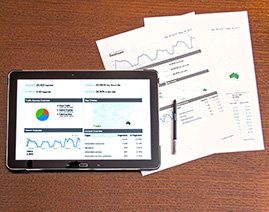
Technology & Competitive Data Analysis More Money – More Competition; everyone wins
Technology & Competition – More Money, Better Deal for Consumers & Companies – H...

Anatomy of Fintechs that’s redefining Financial services business models.
On a weekend in 2013 during monsoon I invited my friend and his family for a dinner at my place. It ...

Blockchain Taxation
World has paid a heavy price for trust, transparency, controls and accountability. Globally there i...

Why Is CDR / CDNR So Important?
Addressing the Fundamental Deficiency in Today’s Mainstream Cyber Security Strategies From Det...

CIO Business leadership - shifting from tech to business leadership
CIOs are no longer technocrats, they are business enablers and crucial part of organisation. CIOs sh...

Ideas and Opinions | 5G as an Enabler of Smart Cities
When 5G comes to mind these days, we think of “is this REALLY it?” and “have we re...

Lessons in Machine Learning
More organizations are using machine learning for competitive reasons, but their results are mixed. ...

Digital Indoor System: Critical Infrastructure for Digital Economic Transformation
Digital Indoor System: Critical Infrastructure for Digital Economic Transformation Developme...

The Changing DNA of the CIO CIO as Business Enabler
The idea that the role of the CIO has now gone beyond technology and innovation related issues, and ...

Today's Digital Miners
Today's Digital Miners I guess by now everyone of us who have read an article or two on digital...

Digital Transformation Readiness Test for Banks
Digital Transformation Readiness Test for Banks The questions banks need to try to answer to test ...

What is Machine Learning
What is Machine Learning? According to Tom Mitchell, a professor at Carnegie Mellon University has d...

Transformation of industry verticals through 5G – Focus and Look Indoors
Transformation of industry verticals through 5G – Focus and Look Indoors Now that 5G is...
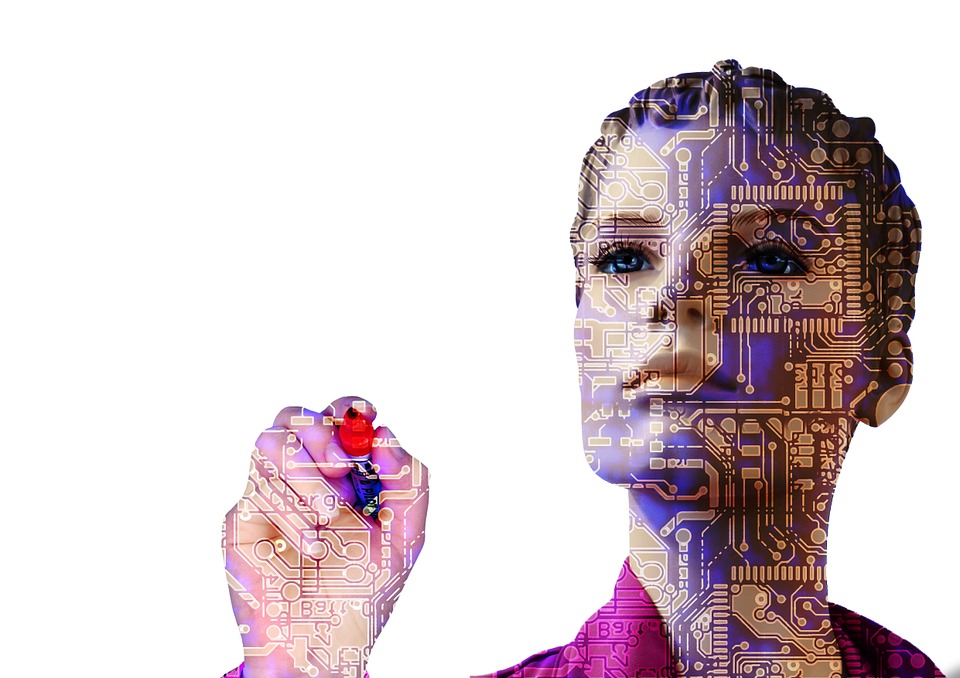
Humanize Technology - back to the basics of serving human needs, humanly
Humanize Technology - back to the basics of serving human needs, humanly The subjects of Digital Tr...
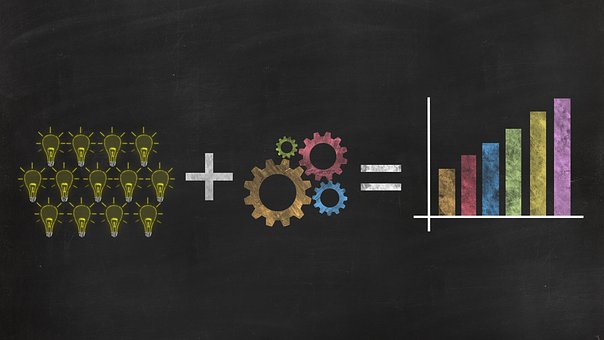
Creating the foundation for Sustainable Innovation
Creating the foundation for Sustainable Innovation In 2011, Marc Andreessen famously proclaimed tha...

About Tech Data Diversity And Inclusion
About Tech Data Diversity And Inclusion I am excited about attending the Hispanic IT Executive Coun...
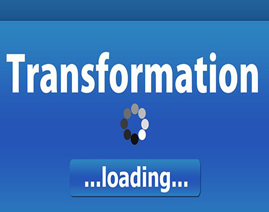
Digital Transformation: Customer Centricity & Intimacy
Digital Transformation: Customer Centricity & Intimacy It was inspiring listening to IMD Profess...

Is Industry 5.0 putting humans back in the center
Industry 4.0 focused on the machines. Is Industry 5.0 putting humans back in the center? I was on a...

Importance of IT Resilience
Importance of IT Resilience Disclaimer: The posting written here is solely of my own comment and ...

Implementing a SaaS Solution – The 3 Major Technical Challenges
So when are you planning to implement a SaaS (Software as a Service) solution? Very soon, if not alr...

So you want an #Innovation Hub?
Innovation, Design Thinking, Digital, Disruption, Agile, Transformation - these are new buzz words t...

How POC projects made me a better Project Manager
How did I get here? Project Management is a tough job. We need to keep a track on budgets, timeline...

How Data and AI can help in COVID-19 crisis
Since the first report of coronavirus (COVID-19) in Wuhan, China, it has spread to at least 100 othe...

Building thriving business partnerships with Open API
Apple and Google recently collaborated to assist in enabling contact tracing and reducing the spread...

The Future of Indoors with Digital Indoor Systems
Digital Transformation, 5G, and COVID-19 have triggered further growth in indoor traffic Digital tr...

Seizing Opportunities in the ICT Sector
The Increased Pace of Digital Transformation Automation, digitalisation, artificial intelligence (A...

CoVID19, Digital, ML
CoVid19 hit us and has now created the “new Normal” in terms WFH, Video conferences, bal...

Do we really need CEOs, CFOs, and CIOs?
Why CMOs and CTOs are all you need to succeed in today's world This is my first article in a se...

Cinématographe by the Lumière Brothers & History of AI
The Lumière brothers, Auguste and Louis, French inventors and the pioneer manufacturers...

Avenues To Expedite The Incorporation Of 5G Into Industry
5G has been launched in Asia Pacific. South Korea, China, the Philippines and other countries have b...

4G/5G Fixed Wireless Access: A Critical Revenue Growth Engine
In studying key success factors of solutions, it can almost always be shown that the underlying conc...

Big Data Machine Learning IoT and PI
In the era of the Internet of Things (IoT), an enormous amount of sensing devices collect and genera...

Asia’s Plan To Leverage 5G Is Missing A Regional Strategy
The day the world’s first commercial 5G services promised a “great leap” is still ...
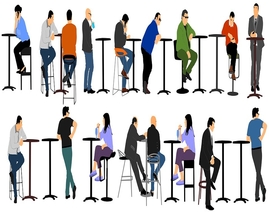
Learning from #COVID19…Would remote working be the new normal?
Musings of a Technology Evangelist In the past few months, we have all learnt many new terms&hellip...

Principles of Sustainable Cybersecurity
In past few years the annual rate of cybersecurity breaches has almost been doubled, and as a result...

Data Governance a key element for Digital Transformation
For the last few years, corporate environment, used to speak and hear lots of financial/management t...

Seven Traits of a Millennial CEO
With a staff strength and annual turnover in the order of billions and trillions respectively, Chris...

What is a Pass Key and Is Now the Time To Adopt Them?
What is a Pass Key and Is Now the Time To Adopt Them? There has been recent news about a mass...








David R. Hardoon
Senior Adviser, UnionBank Philippines.
David is the Senior Advisor for Data and Artificial Intelligence at UnionBank Philippines. Concurrently David is an external advisor to Singapore's Corrupt Investigation Practices Bureau (CPIB) in the capacity of Senior Advisor (Artificial Intelligence) and to Singapore's Central Provident Fund Board (CPF) in the capacity of Senior Advisor (Data Science). Prior to his current roles, David was Monetary Authority of Singapore (MAS) first appointed Chief Data Officer and Head of Data Analytics Group reporting to the agency Deputy Managing Director for Financial Supervision and subsequently Special Advisor (Artificial Intelligence) reporting to Deputy Managing Director for Markets and Development. In these roles he led the development of the AI strategy both for MAS and Singapore’s financial sector as well as driving efforts in promoting open cross-border data flows. David has extensive exposure and experience in both industry and academia and he has consistently applied advanced technology with an analytical mindset to shape and deliver new innovation. David holds a PhD in Computer Science in the field of Machine Learning from the University of Southampton and graduated from Royal Holloway, University of London with First Class Honors B.Sc. in Computer Science and Artificial Intelligence. Out in the "field", David is more likely to consider himself a data artist instead of a pure data scientist.